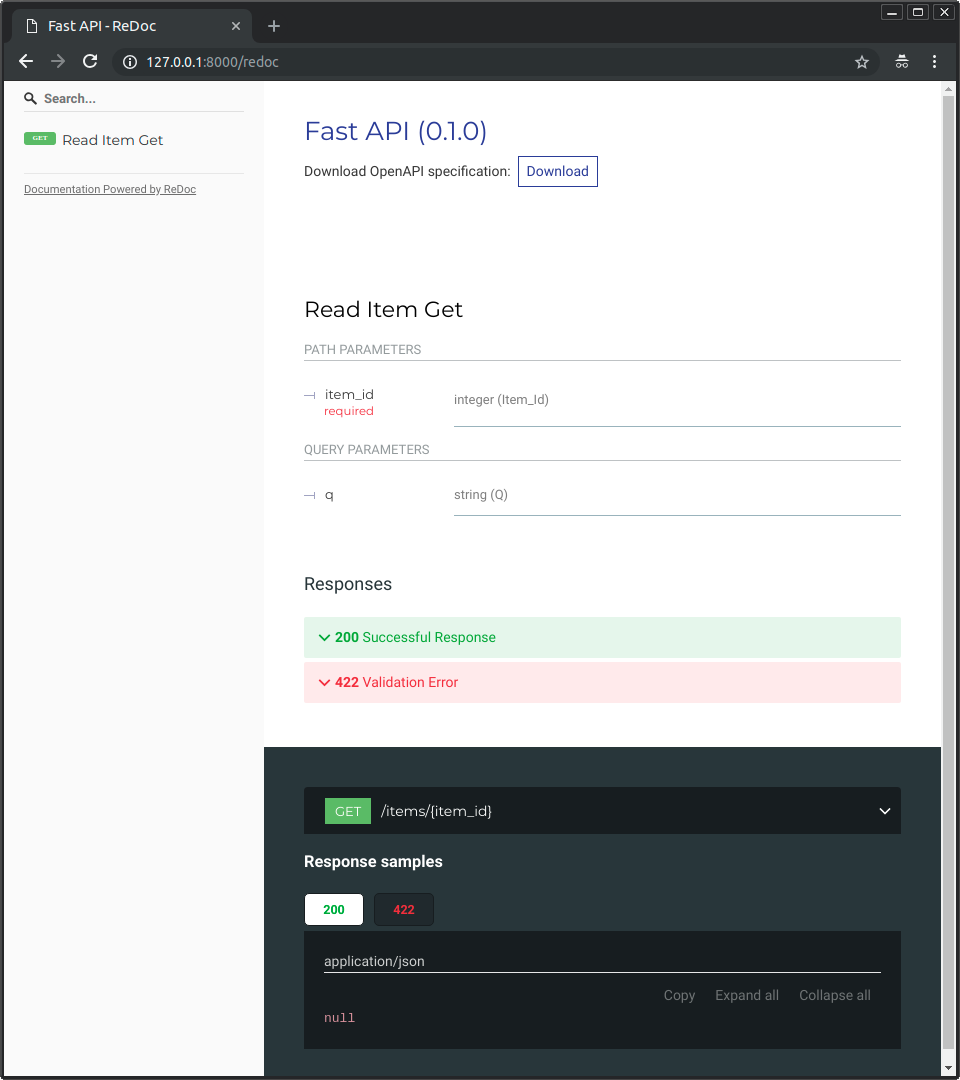- Sort Score
- Result 10 results
- Languages All
Results 181 - 190 of 478 for Standart (0.06 sec)
-
android/guava/src/com/google/common/math/StatsAccumulator.java
} /** * Returns the <a * href="http://en.wikipedia.org/wiki/Standard_deviation#Corrected_sample_standard_deviation"> * corrected sample standard deviation</a> of the values. If this dataset is a sample drawn from a * population, this is an estimator of the population standard deviation of the population which * is less biased than {@link #populationStandardDeviation()} (the unbiased estimator depends on
Registered: Fri Sep 05 12:43:10 UTC 2025 - Last Modified: Mon Apr 14 16:36:11 UTC 2025 - 15.8K bytes - Viewed (0) -
docs/de/docs/history-design-future.md
Es war beispielsweise klar, dass es idealerweise auf Standard-Python-Typhinweisen basieren sollte. Der beste Ansatz bestand außerdem darin, bereits bestehende Standards zu nutzen.
Registered: Sun Sep 07 07:19:17 UTC 2025 - Last Modified: Mon Jul 29 23:35:07 UTC 2024 - 4.8K bytes - Viewed (0) -
api/maven-api-core/src/main/java/org/apache/maven/api/Packaging.java
* * <p>The {@code Packaging} class is an immutable value object, ensuring that once a packaging type is defined, it cannot be changed.</p> * * <h2>Standard Packaging Types</h2> * <ul> * <li>{@code jar}: Packages the project as a Java Archive (JAR) file.</li> * <li>{@code war}: Packages the project as a Web Application Archive (WAR) file.</li>Registered: Sun Sep 07 03:35:12 UTC 2025 - Last Modified: Fri Jun 06 14:28:57 UTC 2025 - 3.2K bytes - Viewed (0) -
.github/ISSUE_TEMPLATE/00-bug.yml
# https://docs.github.com/en/communities/using-templates-to-encourage-useful-issues-and-pull-requests/syntax-for-githubs-form-schema name: Bugs description: The go command, standard library, or anything else title: "import/path: issue title" body: - type: markdown attributes: value: |
Registered: Tue Sep 09 11:13:09 UTC 2025 - Last Modified: Thu Jan 04 23:31:17 UTC 2024 - 3.3K bytes - Viewed (0) -
docs/de/docs/advanced/sub-applications.md
{* ../../docs_src/sub_applications/tutorial001.py hl[3,6:8] *} ### Unteranwendung Erstellen Sie dann Ihre Unteranwendung und deren *Pfadoperationen*. Diese Unteranwendung ist nur eine weitere Standard-FastAPI-Anwendung, aber diese wird „gemountet“: {* ../../docs_src/sub_applications/tutorial001.py hl[11,14:16] *} ### Die Unteranwendung mountenRegistered: Sun Sep 07 07:19:17 UTC 2025 - Last Modified: Mon Nov 18 02:25:44 UTC 2024 - 3.2K bytes - Viewed (0) -
guava/src/com/google/common/collect/ForwardingBlockingDeque.java
* default} methods. Instead, it inherits their default implementations. When those implementations * invoke methods, they invoke methods on the {@code ForwardingBlockingDeque}. * * <p>The {@code standard} methods are not guaranteed to be thread-safe, even when all of the * methods that they depend on are thread-safe. * * @author Emily Soldal * @since 14.0Registered: Fri Sep 05 12:43:10 UTC 2025 - Last Modified: Sun Dec 22 03:38:46 UTC 2024 - 4.3K bytes - Viewed (0) -
docs/de/docs/tutorial/dependencies/index.md
{* ../../docs_src/dependencies/tutorial001_02_an_py310.py hl[12,16,21] *} /// tip | Tipp Das ist schlicht Standard-Python, es wird als „Typalias“ bezeichnet und ist eigentlich nicht **FastAPI**-spezifisch. Da **FastAPI** jedoch auf Standard-Python, einschließlich `Annotated`, basiert, können Sie diesen Trick in Ihrem Code verwenden. 😎 ///Registered: Sun Sep 07 07:19:17 UTC 2025 - Last Modified: Mon Nov 18 02:25:44 UTC 2024 - 10.7K bytes - Viewed (0) -
docs/fr/docs/tutorial/first-steps.md
 ### OpenAPI **FastAPI** génère un "schéma" contenant toute votre API dans le standard de définition d'API **OpenAPI**. #### "Schéma" Un "schéma" est une définition ou une description de quelque chose. Pas le code qui l'implémente, uniquement une description abstraite. #### "Schéma" d'API
Registered: Sun Sep 07 07:19:17 UTC 2025 - Last Modified: Sat Nov 09 16:39:20 UTC 2024 - 10.1K bytes - Viewed (0) -
docs/en/docs/advanced/sub-applications.md
{* ../../docs_src/sub_applications/tutorial001.py hl[3, 6:8] *} ### Sub-application { #sub-application } Then, create your sub-application, and its *path operations*. This sub-application is just another standard FastAPI application, but this is the one that will be "mounted": {* ../../docs_src/sub_applications/tutorial001.py hl[11, 14:16] *} ### Mount the sub-application { #mount-the-sub-application }Registered: Sun Sep 07 07:19:17 UTC 2025 - Last Modified: Sun Aug 31 09:15:41 UTC 2025 - 3K bytes - Viewed (0) -
docs/de/docs/how-to/extending-openapi.md
# OpenAPI erweitern In einigen Fällen müssen Sie möglicherweise das generierte OpenAPI-Schema ändern. In diesem Abschnitt erfahren Sie, wie. ## Der normale Vorgang Der normale (Standard-)Prozess ist wie folgt. Eine `FastAPI`-Anwendung (-Instanz) verfügt über eine `.openapi()`-Methode, von der erwartet wird, dass sie das OpenAPI-Schema zurückgibt.
Registered: Sun Sep 07 07:19:17 UTC 2025 - Last Modified: Mon Nov 18 02:25:44 UTC 2024 - 3.6K bytes - Viewed (0)